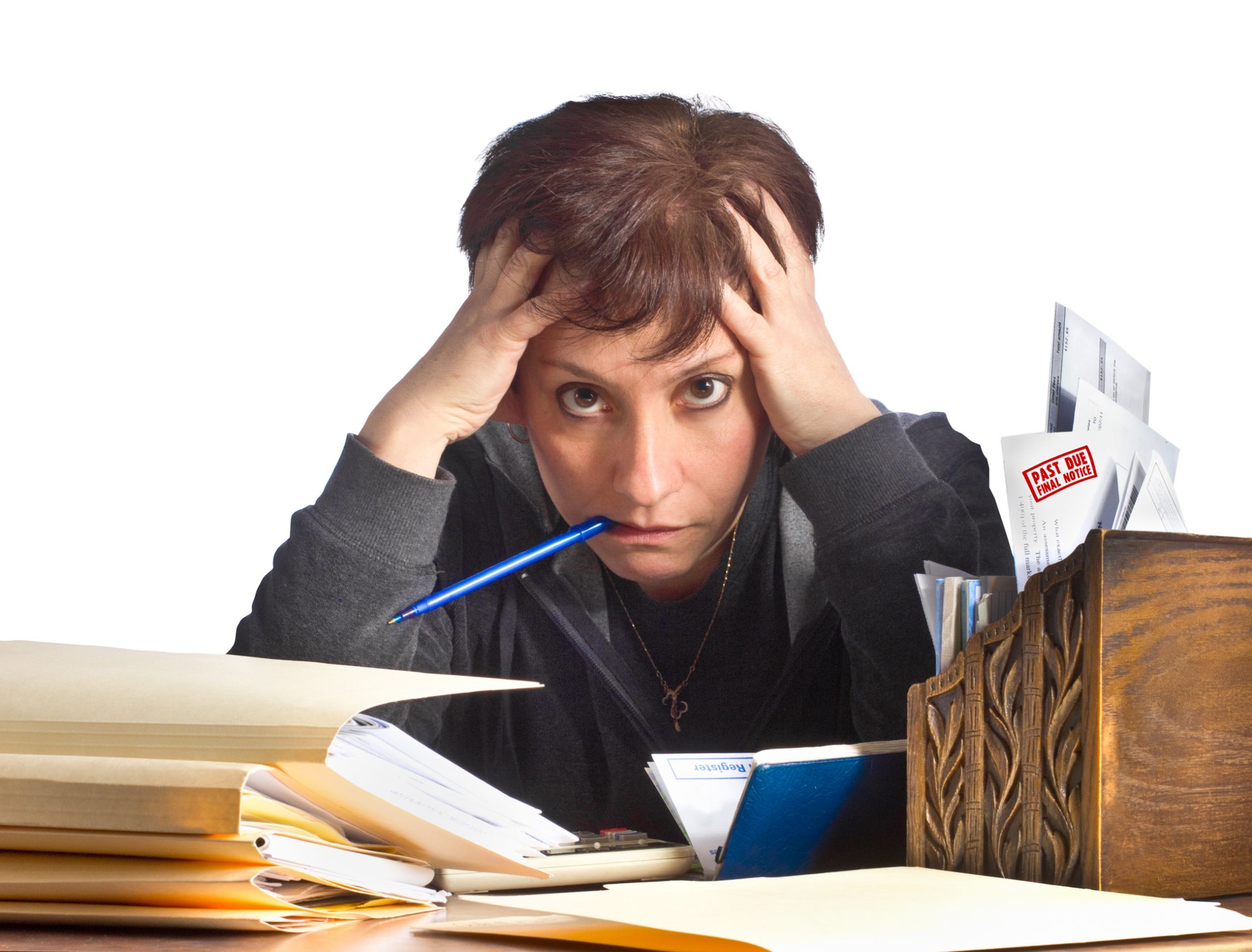
Credit cards can seem like lifesavers when you want or need to make a large purchase. Using a card is so easy — like buying something on someone else’s dime.
That is, until you overextend yourself. Then, you realize that you ultimately will pay an amount far beyond the initial purchase price.
Sound familiar? Following are a slew of signs that might indicate you are carrying too much credit card debt.
If you can relate to any of them, consider seeking help. Stop by our Solutions Center and reach out to a reputable credit counselor. Or, try the DIY method by reading articles like “8 Surefire Ways to Get Rid of Debt ASAP.”
1. You’re hiding the truth from others
Are you lying to your spouse, family and friends, who may be concerned about your outrageous spending habits with the magic plastic? Or maybe you routinely ignore phone calls out of fear that creditors are on the line, wanting to know when you will catch up on those past-due balances.
These are key signs that you are in over your head.
2. You don’t know your outstanding balances
Although you’re aware that your credit card debt exists, maybe you don’t feel obligated to check the outstanding balances — because you can’t pay them off anyway.
3. You can only afford to make the minimum payment
Known as the “minimum-payment trap,” this behavior is a recipe for disaster. By merely meeting your minimum obligation each month, you are simply paying the interest as the balance continues to grow.
This is the sad reality for many, because they cannot afford to pay anything more.
4. No wiggle room exists in your budget
Once all the bills are paid each month, do you have any money left to enjoy the little things in life? Perhaps a night out on the town or even ordering a pizza without using a credit card is not feasible because funds are always low.
Even worse, you may resort to credit cards to cover necessities, such as gas and groceries, because your bank account is overdrawn.
5. You have a hard time saving
For many people, it is impossible to save money because credit card bills quickly absorb any available cash on hand after the household bills are paid.
Unfortunately, not having a savings account in place will only make the debt worse, because you will not be able to handle financial emergencies without resorting to your plastic.
6. Supplementary income is required to pay down debt
It’s a bad sign if you are working overtime or earning money through part-time gigs to make minimum payments — all because your regular income simply isn’t enough.
7. You have maxed out at least one card
Some people max out cards in their arsenal because of high interest rates, while others just feel the need to keep spending until the funds run out.
Regardless of your situation, the balances will more than likely continue to expand beyond the credit limit unless you take action.
8. You can’t stop using your credit cards
Speaking of maxed-out credit cards, is your credit card burning a hole in your pocket? And do you constantly feel the need to make yet another purchase on credit once a debt balance is paid off?
9. You rob Peter to pay Paul
A clear indicator of too much debt is juggling payments between creditors because funds are limited. In some instances, cardholders may even take out a cash advance from one credit card to make the monthly payment on another.
10. You do not qualify for new accounts
Perhaps your debt-to-available-credit ratio is just way too high, barring you from qualifying for additional accounts. If so, take it as a wakeup call that you need to pull back.
11. Late payments are the norm
If you are left with no available resources after working overtime or taking on an extra gig, the monthly due date may simply pass you by. Not only do late payments affect your credit, but it can be difficult to get caught up once you are behind.
Disclosure: The information you read here is always objective. However, we sometimes receive compensation when you click links within our stories.



